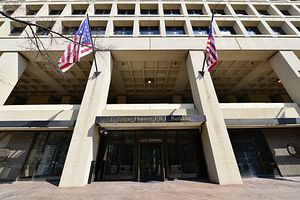Your China links start off with a bang, so let’s get right to it:
Two separate stories, both based on interviews with anonymous U.S. officials, claim that a high-profile Chinese defector has turned into an intelligence windfall for the United States. The whereabouts of Ling Wancheng have been a mystery since his brother, Ling Jihua, was detained under allegations of corruption last year. Ling Jihua was once the top aide to former President Hu Jintao; his brother – who has long been rumored to have fled to the United States – would have had some juicy secrets to reveal about the Chinese government in return for safe haven.
This week, Bill Gertz of Free Beacon claimed that Ling Wancheng is, as rumored, in the United States, and “has been undergoing a debrief by FBI, CIA, and other intelligence agencies” – all while supposedly being targeted by “covert Chinese agents seeking to capture or kill him.” One senior official Gertz spoke to – all his sources remain anonymous – called Ling’s information “an intelligence windfall”; he has supposedly provided information on China’s leaders, their compound at Zhongnanhai, and even the details of China’s nuclear command and control system.
Jamil Anderlini and Tom Mitchell of Financial Times also report those details, but their story has more information on how China has tried to get Ling back. According to their report, at least two delegations from China to the United States – in September and November of 2015 – have presented evidence on Ling’s alleged crimes in an effort to convince Washington to repatriate him to China.
Both stories note the rumor that Ling Jihua transferred a cache of classified documents to his brother’s home in California as an insurance policy against his eventual arrest. Ling Jihua had been in the crosshairs of an anti-corruption investigation ever since his son was involved in a fatal (and scandalous) car crash in Beijing in 2012 – which Ling Jihua then tried to cover up. If that’s the case, it means Xi Jinping’s anti-corruption campaign directly caused this “intelligence windfall” for the United States.
In other news, China National Chemical (ChemChina) just sealed a deal that would be the biggest-ever international acquisition for a Chinese company – a $46 billion offer for the Swiss pesticide and seed company Syngenta. To mark the occasion, Sarah Chen and Tom Lasseter of Bloomberg Businessweek have a profile on ChemChina’s chairman, Ren Jianxin – a “different sort of state-owned enterprise leader” who has become China’s king of overseas mergers and acquisitions.
China has pledged to donate 10,000 tonnes of food to Syrian refugees, Xinhua reports. For more on China’s response to the Syrian refugee crisis, see Moritz Rudolf and Angela Stanzel’s piece in The Diplomat on why China should consider providing more financial aid.
Finally, following on the (in)famous song explanation of China’s 13th Five Year Plan (“the shisanwu, the shisanwu, best pay attention to the shisanwu!”), Xinhua has released the latest musical rendition of Chinese state policy. This time, it’s a rap song extolling Xi Jinping’s “four comprehensive.” The New York Times has the video as well as an explanation of why singing cartoon characters are taking over China’s propaganda apparatus.

































